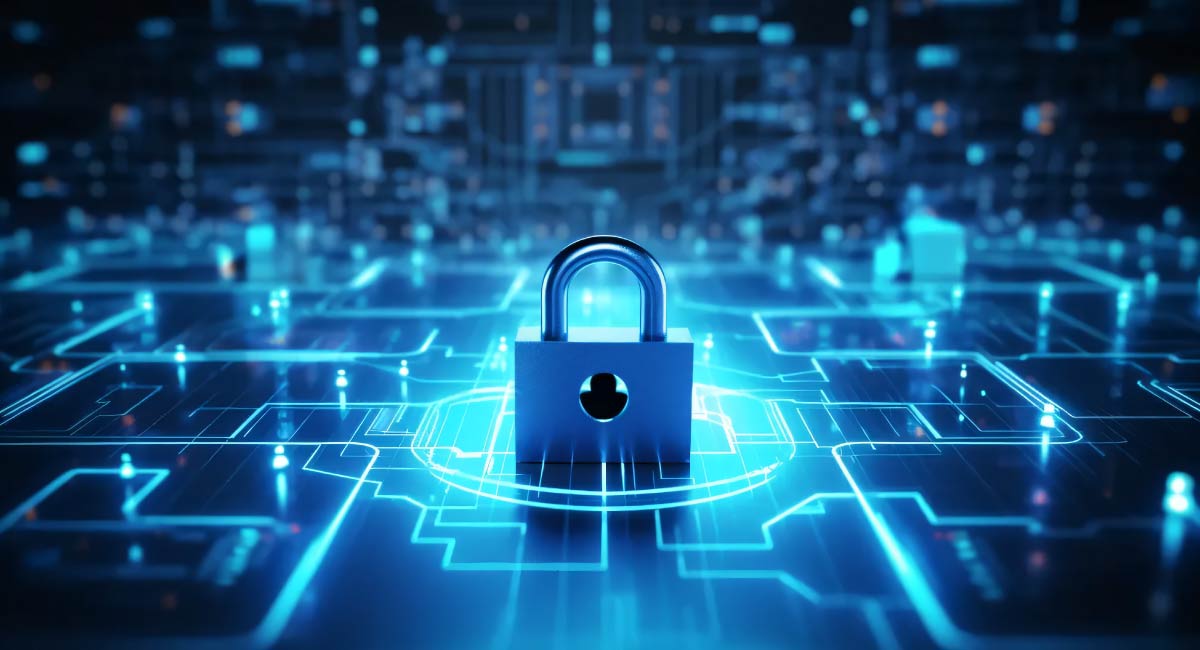Ensuring the security of our data as it travels across the internet is more crucial than ever. Internet Protocol Security, or IPSec, is a robust solution that safeguards our online interactions from potential threats. This comprehensive set of protocols encrypts data and verifies the parties’ identity, ensuring that sensitive information remains confidential and tamper-proof.
For those looking to deepen their understanding of such essential security measures, enrolling in a cybersecurity bootcamp can provide hands-on experience and expert insights. In this blog, we’ll look at the intricacies of IPSec, exploring its vital role in maintaining the integrity and privacy of digital communications.
What is Internet Protocol Security?
How does your data stay safe while traveling across the internet? Today, we’re looking at Internet Protocol Security or IPSec. It’s the unsung hero of the internet, keeping our data secure from prying eyes.
In simplified terms, Internet Protocol Security (IPSec) is a comprehensive set of protocols specifically devised to enhance the security of Internet communications. It achieves this by verifying the identity and encrypting each IP packet within a data stream.
To provide an analogy, consider IPSec a robust security mechanism for safeguarding your online data. Doing so guarantees authorized entities can access the data while preventing unauthorized intrusions.
Also Read: Cybersecurity vs. Software Engineering
Why is IPSec Important?
Internet Protocol Security plays a crucial role in protecting our information. Here’s why IPSec is vital:
Data Confidentiality
IPSec encrypts your data, ensuring that sensitive information remains private and inaccessible to unauthorized users. This process enhances security during online communication, especially when transferring sensitive data such as financial or personal details.
Data Integrity
IPSec uses hashing algorithms to ensure data is not altered during transmission, maintaining its accuracy and consistency. Securing data is vital for preventing tampering, which could lead to incorrect information being sent or received.
Data Authentication
IPSec verifies the identities of communicating parties using digital certificates and authentication protocols. Doing so prevents malicious actors from intercepting traffic and impersonating authorized users.
Anti-replay Protection
IPSec prevents attackers from intercepting and reusing packets by incorporating anti-replay measures. These measures include sequence numbers and time stamps to ensure that each packet is unique and not a duplicate of a previous one.
Secure Remote Access
IPSec allows remote workers to safely connect to their company’s network, protecting sensitive business data. It also allows for secure access to cloud-based services, preventing unauthorized access and data breaches.
Protection Against Cyber Threats
IPSec shields your data from cyber threats like eavesdropping, breaches, and man-in-the-middle attacks. It encrypts the data so only authorized users with the correct keys can access it, thus boosting your network’s security.
Compliance with Regulations
IPSec helps organizations comply with data protection regulations by securing sensitive information during transmission. General Data Protection Regulation (GDPR) and the Health Insurance Portability and Accountability Act (HIPAA) are examples of such regulations.
Versatility
IPSec can be used across different network configurations, including site-to-site and remote access VPNs, making it adaptable to various security needs. It can also be used with other types of networks, including Ethernet, ATM, and Frame Relay.
It’s like having a shield that guards your private information from being intercepted or altered.
Also Read: Ensuring a Line of Defense: Cybersecurity Best Practices
Uses of Internet Protocol Security
IPSec isn’t just technical jargon; it has real-world applications that impact our daily lives. Here are some essential uses:
Virtual Private Networks (VPNs)
IPSec is a cornerstone of many VPNs, providing a protected pathway for data transmission over the Internet. When you connect to a VPN, IPSec ensures that all your internet traffic is encrypted, making it challenging for hackers or surveillance entities to intercept your data. This is especially useful when public Wi-Fi networks are notoriously insecure. Businesses rely on IPSec VPNs to protect sensitive corporate data when employees access the network remotely, ensuring the information remains confidential and secure.
Secure Remote Access
Secure remote access has become essential in the era of remote work. IPSec allows remote workers to safely connect to their company’s internet and network from anywhere in the world. IPSec ensures that sensitive business information, such as internal emails, project documents, and client data, is protected by establishing a secure, encrypted connection. Thus, IPSec is crucial in maintaining data integrity and helping businesses meet data protection regulations.
Protecting Data Transfer
IPSec secures sensitive information exchanged between devices, such as financial transactions and personal communications. For example, when you transfer money online or send a private email, IPSec encrypts the data packets, ensuring they cannot be read or tampered with by malicious actors. This protection extends to various industries, including banking, healthcare, and e-commerce, where the security of data transfers is paramount.
Site-to-Site Connectivity
Businesses with multiple office locations often use IPSec to create secure site-to-site connections. This setup allows different office branches to communicate and share resources securely over the Internet. Using IPSec, companies can ensure that sensitive data transferred between sites is encrypted and protected from interception, fostering secure collaboration and data sharing.
Mobile Security
As mobile device usage increases, securing mobile communications becomes increasingly important. IPSec protects data transmitted from mobile devices to corporate networks or cloud services. This ensures that mobile users can securely access company resources, whether working from a café, airport, or other location.
Cloud Security
With the advent of cloud computing, securing data as it moves to and from cloud services is critical. IPSec provides an additional layer of security for cloud-based applications and services. By encrypting data traffic between the user’s device and the cloud, IPSec helps prevent unauthorized access and data breaches.
Internet of Things (IoT)
The increase in IoT devices introduces new security challenges, as these devices often communicate over the internet. IPSec can be used to shield the communication between IoT devices and central servers or control systems. This ensures that data collected by IoT devices, such as sensors and smart appliances, is transmitted securely and cannot be intercepted or altered.
Government and Military Communications
Due to its robust security features, IPSec is commonly used in government and military communications to protect classified and sensitive information. IPSec helps maintain national security and protect against espionage and cyber attacks by ensuring that communications are encrypted and authenticated.
Compliance and Regulatory Requirements
Many industries must adhere to strict data protection regulations that require encryption to safeguard sensitive information. IPSec helps organizations meet these regulatory requirements by providing a secure method for transmitting data. This is particularly important in the healthcare, finance, and legal services sectors, where data breaches can have severe consequences.
Also Read: What is a Security Operations Center?
What is IPSec Encryption?
Encryption, the core of Internet Protocol Security, transforms readable data into an unreadable format using robust algorithms, ensuring that only someone with a valid decryption key can decipher it. This process protects data from unauthorized access, even if intercepted during transmission. IPSec supports encryption algorithms like AES and 3DES, which offer different security levels.
Key management under IPSec involves secure exchange and periodic updating of encryption keys, typically handled by protocols like Internet Key Exchange (IKE). This ensures the safe establishment of communication channels and the negotiation of cryptographic keys.
Additionally, IPSec maintains data integrity and authenticity, detecting tampering during transmission and verifying data sources. This multi-layered security approach protects sensitive information and provides robust defense against eavesdropping and cyber threats.
How Does IPSec Work?
IPSec operates sophisticatedly, but I’ll break it down for you. At its core, IPSec establishes a secure, encrypted communication channel between two parties. Here’s a simplified breakdown:
Authentication
Before any data is exchanged, IPSec verifies the identities of both parties to ensure they are legitimate. This process typically uses digital certificates or pre-shared keys. Digital certificates issued by trusted authorities contain public keys and identity information. Both parties present their certificates, and cryptographic methods confirm their identities. This step prevents unauthorized access and establishes trust between the communicating devices.
Encryption
Once authenticated, data is encrypted using powerful algorithms like AES or 3DES. Encryption transforms data into ciphertext, making it unreadable without the decryption key. Even if intercepted, the data remains secure and confidential. Only the desired recipient, with the correct decryption key, can decode and access the original information, protecting it from unauthorized access.
Integrity
IPSec uses hashing algorithms to ensure data integrity during transmission. A hash function generates a unique string from the original data and sends it along with the data. The recipient generates a hash value from the received data and compares it to the original. If they match, the data is unchanged. If not, it indicates tampering.
Key Exchange
IPSec uses protocols like Internet Key Exchange (IKE) to exchange cryptographic keys securely. IKE establishes a secure channel between parties, ensuring keys needed for encryption and decryption are exchanged safely. This process prevents keys from being intercepted by unauthorized parties. IKE also periodically updates keys, enhancing security by reducing the risk of key compromise.
Also Read: What is Cyber Hygiene? Meeting Cybercriminals on the Front Lines
Key IPSec Protocols
Internet Protocol Security uses a few key protocols to achieve its security features. Let’s take a look at them
Authentication Header (AH)
The Authentication Header (AH) ensures data integrity and authenticity by adding a header to each packet. For example, AH verifies that the email content has not been altered during transmission in a business email exchange and confirms the sender’s identity. Although AH does not encrypt the data, it prevents tampering and ensures that the data received is the same as what was sent. This anti-replay protection ensures that packets cannot be maliciously resent to gain unauthorized access or disrupt communications.
Encapsulating Security Payload (ESP)
Encapsulating Security Payload (ESP) encrypts data for confidentiality, authentication, integrity, and anti-replay protection. For instance, when users access their bank account online, ESP encrypts their transaction details, ensuring that sensitive information like account numbers and passwords remain confidential. This encryption, combined with authentication and integrity checks, ensures that the data is secure and has not been tampered with during transmission, protecting the user’s financial information from unauthorized access.
Internet Key Exchange (IKE)
Internet Key Exchange (IKE) establishes a secure, authenticated communication channel by negotiating cryptographic keys. For example, in a virtual private network (VPN) connection, IKE sets up a secure tunnel between the user’s device and the corporate network. During this process, IKE exchanges and manages encryption keys, ensuring that both parties communicate securely. As a result, unauthorized users are prevented from accessing the encrypted data, resulting in a secure pathway for remote workers to access company resources over the internet.
IPSec Modes
Internet Protocol Security can operate in two distinct modes, each with its purpose:
- Transport Mode: Only the IP packet’s payload (actual data) is encrypted and authenticated in this mode. The packet’s header remains untouched. It’s used for end-to-end communications between two hosts.
- Tunnel Mode: The entire IP packet is encrypted and encapsulated within a new IP packet with a new header. This mode is typically used for network-to-network communications, like VPNs.
What is IPSec VPN?
An IPSec VPN is like having a private, secure online pathway. It encrypts all data passing through, ensuring your online activities remain protected from hackers. For a non-specialist, this means:
- Safe Browsing on Public Wi-Fi: An IPSec VPN protects your data from potential snoopers when using public Wi-Fi at a coffee shop or airport.
- Remote Work Security: If you work from home, an IPSec VPN protects sensitive company data, ensuring that confidential information remains safe.
- Privacy Protection: It keeps your browsing history confidential, so third parties cannot track your online activities.
Also Read: What is Threat Modeling?
IPSec Tunnel Mode vs. IPSec Transport Mode
Let’s dive deeper into the two Internet Protocol Security modes mentioned earlier.
- Tunnel Mode: This mode is perfect for site-to-site VPNs. It encapsulates the entire original IP packet, adding a new IP header. It’s like putting your data in a secure envelope before sending it.
- Transport Mode: This mode is ideal for end-to-end communications between individual hosts. It encrypts only the payload, leaving the header untouched. Think of it as sealing just the contents of a letter, not the envelope itself.
Both modes have their uses, and the choice between them depends on the specific needs of the network setup.
IPSec Applications
IPSec has a wide range of applications in various industries and scenarios. Here are a few examples:
Corporate Networks
In corporate networks, IPSec ensures secure remote access for employees. For instance, a remote worker logging into the company’s intranet uses an IPSec VPN to create a secure tunnel. This tunnel encrypts data, allowing safe access to company resources, emails, and files from anywhere globally. Hence, there is no unauthorized access to corporate data, resulting in protection from cyber threats.
Government and Military
IPSec is vital for government and military communications due to its robust security. For example, military personnel transmitting classified information use IPSec to ensure the data remains confidential and untampered. This high level of security prevents espionage and unauthorized access to sensitive information, maintaining national security.
E-commerce
Online businesses use IPSec to secure financial transactions and customer information. For example, when a customer purchases an e-commerce site, IPSec encrypts the payment details and personal data. This encryption protects against cybercriminals attempting to intercept and misuse the information, ensuring a safe shopping experience.
Healthcare
IPSec safeguards sensitive patient data during transmission between healthcare providers and insurance companies. For instance, a hospital sending electronic medical records to an insurance provider uses IPSec to encrypt the data. Patient information is thus kept confidential and secure, in alignment with HIPAA regulations.
IPSec Benefits
IPSec offers numerous benefits that make it a go-to choice for securing internet communications:
Enhanced Security
IPSec uses strong encryption and authentication methods to ensure data confidentiality and integrity. Any information sent over an IPSec connection is protected from unauthorized access and tampering, making it highly secure.
Flexibility
IPSec is versatile and can be used for multiple purposes, such as securing remote access for employees or creating secure site-to-site VPNs between different office locations. This adaptability makes it suitable for various business needs.
Scalability
Whether you are a small business or a large enterprise, IPSec can scale to meet your security requirements. It provides consistent protection as your organization grows, ensuring your data remains secure.
Interoperability
IPSec works with various devices and networks, making it a flexible solution for different technological environments. This compatibility ensures that IPSec can be easily integrated into your existing infrastructure.
Cost-Effective
IPSec leverages the existing internet infrastructure, so you don’t need to invest in expensive dedicated lines for secure communications. It is, therefore, a budget-friendly option for implementing robust security measures.
Also Read: Exploring Types of Hackers and Their Impact on Cybersecurity
Boost Your Cybersecurity Skills with Online Training
There you have it—a comprehensive look into Internet Protocol Security (IPSec). From encrypting your data to ensuring secure remote access, IPSec plays a vital role in keeping our digital lives safe. So, the next time you browse the web or send sensitive information, you’ll know that IPSec is working behind the scenes, acting as your digital bodyguard.
For those eager to gain a deeper understanding of IPSec and other essential security measures, enrolling in this online cybersecurity program is an excellent step toward gaining the skills needed to protect digital assets. The bootcamp will help you gain crucial skills like asset and inventory management, data privacy, risk management, and more. Consider sharing this article with friends and colleagues who might find it helpful.
You might also like to read:
What is Incident Response in Cybersecurity?
Best Online Cybersecurity Certificate Programs
What Is Cybersecurity Compliance? Definition, Importance, Types, and More
The Essential Guide to Endpoint Security and Protections
What is Threat Intelligence? Definition, Types, Importance, and More






